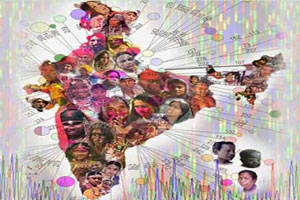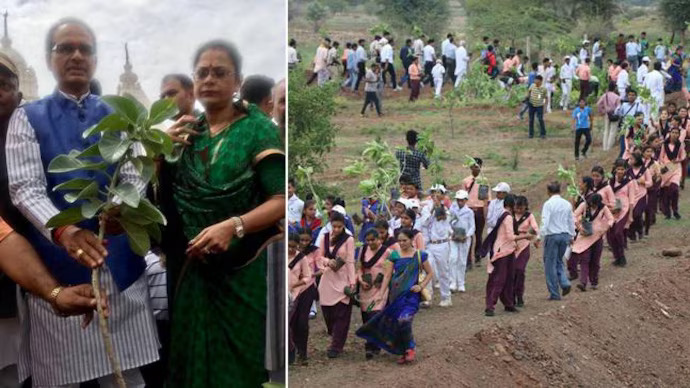
Almost every channel and newspaper, including social media, while analyzing the outcome of the recently concluded elections in which Mr. Modi narrowly missed a majority and faced a setback in UP, particularly Ayodhya, held Dalits responsible for the setback. On social media, it was no holds barred. It highlighted the arrogance of some of our upper-caste Hindus who blamed the Dalits for this setback, as if they committed a crime by not voting for Modi.
This is also an indicator that neither Bapu's efforts nor the political empowerment of Dalit leaders (as envisioned by Dr. Ambedkar) have succeeded in transforming the hearts of the upper-caste Hindus. There is hardly any change of heart as far as upper-caste Hindus are concerned; perhaps they have a habit of dictating terms and issuing directions to their brothers from lower castes.
For thousands of years, upper-caste Hindus deprived lower-caste Hindus of the right to live a respectful and dignified life. There are well-documented records proving the ill-treatment and exploitation of lower-caste Hindus: denying them access to village wells, denying them entry into temples, following rituals like sprinkling water on paths after a Dalit had passed, and forbidding public wedding rituals, among other injustices.
In Travancore state, the King imposed exorbitant taxes on Dalits, particularly a tax called Mulakkaram, which was levied on Dalit women who wore clothing covering their breasts. One brave woman protested this humiliating tax by cutting off her breasts.
It has taken numerous Satyagrahas by Dr. Ambedkar to compel the upper caste to allow lower-caste Hindus access to water from a tank in Mumbai and entry to the Kalaram Mandir in Nasik. Before Babasaheb Ambedkar led the Nasik Kalaram temple entry movement, there had been various other temple entry movements from Dalits’ side with little success. In 1874, a failed attempt was made by untouchables in Madras state to enter Minakshi temple. In 1924, the temple entry movement was launched at Vaikom in Travancore state by Periyar. The attempt for Ambadevi temple entry Satyagraha at Amaravati started in February 1928 but could not gather much support. Another attempt was at Parvati Temple in Pune in October 1929 and continued until 1930 without much change of heart from the so-called upper castes.
Gandhiji’s fast unto death pressured upper-caste Hindus to open temples and wells to lower-caste Hindus. The Constitution of India eventually granted them equal rights and made discrimination a crime.
Despite this, the Mandal Commission report, which recommended reservations for lower castes, faced fierce opposition from the upper castes. So, the rights and reservations granted to lower-caste Hindus were achieved not through a transformation of heart, as Gandhiji envisioned, but through legislation, protests, and agitation.
Discrimination persists despite legislation. For instance, just a year ago in Madhya Pradesh near Mandsaur, a lower-caste police constable required police security to complete his wedding rituals because upper-caste Hindus objected to the public procession.
A Dalit family from Karnataka's Miyapur village in Koppal district was fined Rs 25,000 in 2021 after their two-year-old child entered a temple.
Those who dismiss caste-based discrimination and blame the British for creating divisions among Hindus must realize that Dalits, a significant portion of our community, only gained their rights through the Constitution after Independence.
The democratic institutions established under the Constitution, which enabled Dalits to vote, have ensured that Dalits have a voice. However, the upper-caste Hindus still show no remorse or guilt for their forefathers' actions and prefer to blame others for the division.
Recently, listening to Trevor Noah, a renowned South African comedian, I noticed that he, without fear of reprisal, mocked white people during his performance in the US, and they applauded him. He touched upon a sensitive issue in his country: discrimination against Blacks. Noah mentioned that in South Africa, the exploitation of Blacks is taught in schools and is openly condemned as harmful to society.
Just as we freely discuss and criticize the atrocities of Muslim invaders, it is crucial for upper-caste Hindus to openly acknowledge and educate their children about the historical injustices against Dalits. This honest confrontation with the past is essential to prevent repetition and promote true equality.
Until this issue of caste-based discrimination is taught to students and its adverse impact on society discussed publicly, we will continue to produce citizens who boast of their caste chauvinism and are unaware of the past injustices. They should be able to appreciate why Dalits are apprehensive about any changes to the Constitution, which arises from the fact that the rights they enjoy today have come after a long and arduous struggle and through the Constitution and not through any change of heart of the upper-caste Hindus.
The upper-caste Hindus need to show empathy instead of cursing and dismissing the discrimination and ill-treatment that Dalits faced, as the Dalits cannot afford to sacrifice their hard-earned freedom.
Let's discuss it and accept that we did wrong and should emerge stronger than ever.



